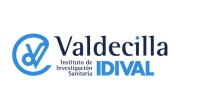The Neuroimaging Unit offers a wide range of techniques for quantitative analysis of human brain imaging obtained by magnetic resonance imaging (MRI) to obtain data on brain variables (volume of structures or areas of the brain, cortical thickness, pattern of girification, structure of white matter, activity pattern, ...) important for the advance in the knowledge of the brain functions, and therefore, of the possible alterations present in the serious mental illnesses, constituting a fundamental tool in the investigation of the brain.
SERVICES
Design and assessment of neuroimaging studies:
To provide technical and methodological support in the design and implementation of both scientific studies and clinical imaging trials. Design and advice on the election of sequences (parameters of acquisition of an MR image) optimized for each particular project. Improvement of the quality of the images.
Structural Neuroimaging:
Through the use of detailed images of the cerebral anatomy, calculation of volumes of cortical and subcortical structures as well as calculations of thickness, area and cortical curvature are made. Our work in this field aims to:
A) To determine the existence of volumetric differences and / or cortical thickness in patients with different pathologies and healthy control subjects;
B) Longitudinal studies of detection of structural changes over time;
C) Study of the relationship between variables related to the brain structure and other clinical, cognitive and / or genetic variables.
Functional Neuroimaging:
Functional MRI is a noninvasive technique to study brain function using changes that occur in the resonance signal and associated with brain activity. Our work in this field aims to explore different areas of brain activation when the subject performs a task and when they are resting.
Diffusion MRI:
The Diffusion Tensor Imaging (DTI) technique is an innovative application of MRI that allows the non-invasive characterization of the architecture, organization and integrity of the cerebral white matter. Our work in this field intends:
A) Calculation of fractional anisotropy (FA), local diffusion modeling and reproduction of tracts / tractography in different pathologies;
B) Study of the relation between related variables with the Image of the Tensor of Diffusion and other clinical, cognitive and / or genetic variables.
EQUIPMENT
NMR spectroscopy:
Spectroscopy is a noninvasive technique that allows to obtain a metabolic spectrum of the brain based on the difference in the chemical composition of its metabolites reflected in a different resonance frequency.
Our work in this field aims to:
A) Identify metabolic markers for different pathologies;
B) Identify neuronal progenitor cells in vivo in the human brain.
Genomics and neuroimaging:
To extend our search for a relationship between certain genetic variations and brain structure and / or function has become one of our priority lines of research. This line has led to collaborations in international consortia with publications in very high impact journals.
Scientific Director
Dr. Benedicto Crespo Facorro
E-mail: bcfacorro@humv.es
Main Technician:
Dra. Diana Tordesillas
E-mail: neuroimagen@idival.org
Collaborators
Víctor Ortiz de la Foz
Service request form and regular fees are available at the website http://www.idival.org/en/Central-support-unit/Core-facilities/Unidad-de-Neuroimagen




